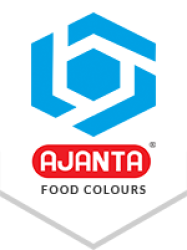Tanzania is a beautiful country located in East Africa. It is famous for its beautiful natural scenery, diverse wildlife, and rich cultural history. The nation shares its borders with Kenya, Uganda, Rwanda, Burundi, the Democratic Republic of the Congo, Zambia, Malawi, and Mozambique, and boasts a coastline along the Indian Ocean. Its ports are very important for regional trade.
Tanzania has begun focusing on manufacturing sectors to reduce its dependency on agriculture and natural resources. It started investing in many manufacturing industries such as food and beverages, cosmetics, pharmaceuticals, confectioneries, personal and home care products, animal feed, etc. It aims to create jobs in the country, grow economic growth, and reduce the dependency on imports.
In the manufacturing of any product, many elements are required and each plays an important role. From raw materials to machinery, every part is essential. Colour stands out as a key component, it enhances product appeal, attracts customers, and serves many other functions. To meet the demand for a variety of colour options, Tanzania imports colours from other countries such as India, Turkey, Germany, and the United States. This allows Tanzanian manufacturers to produce products that meet consumer preferences and market demands.
Tanzania Industries Where Colours Play a Vital Role
In Tanzania, many sectors use colours in their products to evoke emotions, shape product identity, and convey messages. Let’s explore some key industries where colour plays an important role.
Food and Beverage Industry
In Tanzania food and beverage manufacturers face some problems in selecting the right food colour for their products. Colour is an important element that influences consumer perception, preference and purchase decisions. Natural colours may not provide the desired quality, stability and consistency to products. Synthetic food colours are the best solution to this problem, these colours are more stable, vibrant and come with lots of different shades compared to natural colours. Synthetic colours can help Tanzanian manufacturers enhance the appearance, shelf life and appeal of their products, which ultimately boosts their sales. Tanzanian suppliers import colourants in bulk quantities from other countries at low prices and sell them to businesses in the country. Some suppliers sell the colourants under the brand name of the company from they buy colourants, while others create their own labels and sell the colourants under their own brand name. Major places in Tanzania where most of the food and beverage manufacturing industries are located are Dar es Salaam, Arusha, Mwanza, Dodoma and Zanzibar. According to recent statistics, the revenue of the food market in Tanzania is projected to reach US$32.24 billion by 2024. The market is expected to grow annually by 8.32% (CAGR 2024-2028).
Cosmetics Industry
In Tanzania, cosmetic manufacturers face some problems in selecting the right colour for their cosmetics products such as lipstick, eyelashes, mascara, foundation, highlighter, blusher, concealer, etc. These problems are finding suitable colour shades and ensuring the colours remain stable. Low-quality colours affect the cosmetics' quality and attractiveness. Synthetic colours provide the solution to these problems. Synthetic colours are consistent, come with lots of different shades, and provide better stability. These broader ranges of colours, enable manufacturers to design distinctive and appealing products that standout their products from competitors which helps in making the product brand. In Tanzania most of the cosmetics industry is located in urban cities like Dar es Salaam and Arusha. By 2024, it's expected that Tanzania's cosmetics market will generate revenues of US$391.90m, with a projected annual growth rate (CAGR) of 3.83% from 2024 to 2028.
Pharmaceutical Industry
In the pharmaceutical industry of Tanzania, manufacturers face some challenges in selecting the right colours for their pharmaceutical products such as tablets, capsules, syrups, drops, etc. They want colours that are high-quality, stable, and don’t fade or change their colours. Synthetic colours solve this issue of pharma manufacturers as these colours come with lots of different colour shades which are of high quality, stable and compliant with safety regulations. These colours also aid in distinguishing different medicines, reducing the risk of medication errors and enhancing brand recognition and customer loyalty. This contributes to increased medicine sales and establishes the manufacturer's reputation for reliable products. In Tanzania many big distributors import colourants from other countries and then distribute them in the country. Some distributors sell these colourants under the brand name from the buy colourants, while others create their own labels and sell the colourants under their own branding. Most of the pharmaceutical manufacturing industries of Tanzania are located in major cities such as Dar es Salaam, Arusha, and Mwanza. In that city infrastructure and logistical support are readily available. The revenue of the pharmaceuticals market in Tanzania will reach US$239.90 million by 2024 and the market is expected to grow at an annual rate of 7.04% from 2024 to 2028, resulting in a market volume of US$314.90 million by 2028.
Chocolate Industry
Choosing the perfect colours for their products remains a big hurdle for Tanzania chocolate manufacturers. These colours should be attractive, of high quality and stay stable through the whole process of production. Synthetic colourants are the answer to these problems. Chocolate makers stand to gain much from using synthetic colours. They are able to achieve the right shade of colour for any occasion or taste. Moreover, synthetic colours do not fade or change with time. Also, they pose no health risk and satisfy strict regulatory requirements in regard to consumption because they do not harm anyone especially children. Using synthetic colours in their chocolate products manufacturers boost their sales and they also export their products in the international market where vibrant and brightly coloured chocolate products are highly demanded. Colourant merchants in Tanzania import synthetic food colours from other countries at low prices and sell them to Tanzanian food and beverages, cosmetics, pharma, etc, manufacturers at high prices and make a profit on every deal. They also offer discounts and incentives from time to time to attract more customers. Ajanta Food Colours is a trusted manufacturer of food colourants that offers high-quality food colours at affordable prices. Many merchants and distributors choose Ajanta because of their colour quality and pricing. In Tanzania most of the chocolate manufacturing industries are located in urban areas like Dar es Salaam, Arusha, and Mbeya, where access to resources and markets is favorable. According to Statista, the confectionery market of Tanzania will generate revenue amounting to US$4.40bn in 2024, and the market is expected to grow annually by 7.15% (CAGR 2024-2028).
Animal Feed Industry
Animal feed manufacturers face some hurdles in choosing the perfect colours for their products. They want colours that should be attractive, of high quality and stay stable through the whole process of production. Synthetic colourants are the best solution to these problems. Animal feed manufacturers stand to gain much from using synthetic colours and they are able to choose their desired colours. These vibrant and bright colours do not fade or change over time, and come in many different shades that enable manufacturers to make unique products and stand out from the competitive market and make their product brand. Moreover, synthetic colours also help in identifying and differentiating between various animal feeds, such as poultry, swine, or cattle. The animal feed industry also contributes to Tanzania’s economy by supporting the production of meat, dairy products, and other animal goods. In Tanzian most of the animal feed manufacturing industries are located in Dar es Salaam, Arusha, and Mwanza, where competition among animal feed producers is high. The animal feed industry in Tanzania is projected to reach a revenue of US$77.92m by 2024, with an expected annual growth rate of 9.37% from 2024 to 2028 (CAGR).
Cultural Preferences of Colours in Tanzania
In Tanzania, the use of specific colours is often dictated by cultural values and symbolism. For example, vibrant colours like red and green hold a lot of meaning when it comes to ceremonies and happy occasions while brown and orange among other earth tones represent land and nature. Manufacturers take advantage of these cultural preferences by infusing these hues into their products such as food, beverages, chocolates, among others as well as cosmetics. Food items may have vibrant reds or greens which create an impression of freshness or life while cosmetic products might go for earthy tints thus portraying natural beauty. Instead they align themselves with these cultural preferences.
Regulatory Guidelines on Colours in the Tanzanian Market
In Tanzania, regulatory guidelines on colours used in products like food, beverages, pharmaceuticals, cosmetics, etc., are overseen by the Tanzania Food and Drugs Authority (TFDA). TFDA ensures that these products meet safety standards and do not pose any health risks to consumers. By enforcing these guidelines TFDA protects customers from potential harm caused by unsafe colours or additives in foods. Manufacturers need to adhere to these regulations to ensure the safety and quality of their products, as non-compliance can lead to legal consequences and damage to their reputation. TFDA's role is very important in maintaining public trust in the safety of products available in the market.
Ajanta Food Colours is a leading colourant manufacturer with over 75+ years of experience. The company manufactures stable and high-quality colours, exported to many East African countries, including Sudan, Kenya, Rwanda, and Burundi. They also fulfill the colours demand of the Tanzanian market.
Ajanta Colours has received many certificates that show the quality and safety of its colours. The company has the FDA certificate, ISO 9001:2015 certificate for its quality management system, HACCP certificate for its food safety system, HALAL certificate for its compliance with Islamic dietary laws, KOSHER certificate for its compliance with Jewish dietary laws, etc.
Startups in Tanzania face many challenges while launching a new product in the market. They compete with the established brands in the market to sell their products. To gain attraction of customers startups want to differentiate their products from others. Ajanta Food Colours provides premium food colours to help Tanzanian startups create distinctive products that enhance visibility and increase sales.
Ajanta Food Colours is the ideal choice for Tanzanian businessmen seeking a reliable colours exporter. Offering affordable prices and on-time delivery, Ajanta enhances the customer experience with their commitment to tailored solutions and technical support. They provide a vast array of colours to cater to diverse market needs, all while maintaining consistent quality and performance. Ajanta prioritizes customer satisfaction and loyalty, solidifying their position as a dependable partner for high-quality colour solutions in Tanzania.
To know more about Ajanta Food Colours and its Supra range of colours, or for any other information, please contact us today!





_1710504590.jpg)